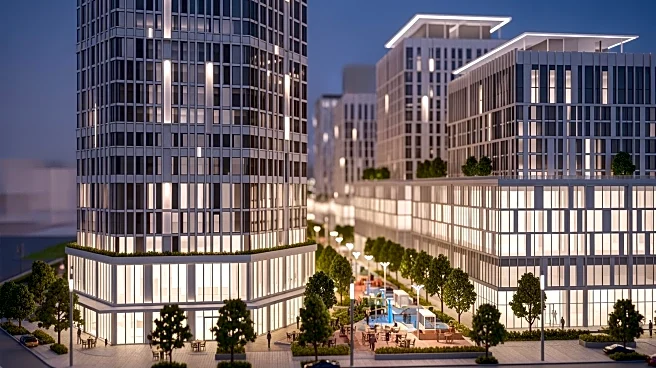What's Happening?
AEG, the owner of Crypto.com Arena and L.A. Live, has filed plans with the city of Los Angeles to expand their sports and entertainment complex. The proposed development includes a 49-story high-rise featuring
a hotel, residences, bars, and restaurants. The tower would be located across Olympic Boulevard from L.A. Live, on a site currently used for parking. This expansion is part of AEG's strategy to enhance downtown Los Angeles's appeal and economic activity.
Why It's Important?
The expansion of L.A. Live is significant for the economic development of downtown Los Angeles, potentially boosting tourism and business activity. The addition of a hotel and residences aligns with broader trends in urban development, where mixed-use projects aim to create vibrant, liveable city centers. AEG's plans reflect confidence in the long-term prospects of downtown Los Angeles, despite current economic challenges such as high interest rates and construction costs. The project could create jobs and contribute to the city's competitiveness in attracting events and visitors.
What's Next?
AEG's land-use application is the first step in the development process, with construction not expected to begin immediately. The company will likely monitor economic conditions and adjust plans accordingly. The project will require city approval and may face scrutiny regarding its impact on local infrastructure and services. Stakeholders, including city officials and community members, will have opportunities to provide input and influence the project's direction. The expansion could also prompt discussions about sustainable development and urban planning in Los Angeles.
Beyond the Headlines
The proposed expansion of L.A. Live raises questions about the balance between development and community impact. Large-scale projects can transform urban landscapes but may also strain local resources and infrastructure. The development highlights the role of private companies in shaping city environments and the importance of public engagement in planning processes. AEG's plans reflect broader trends in urbanization and the need for cities to adapt to changing economic and social dynamics, emphasizing the importance of strategic planning and collaboration between public and private sectors.








